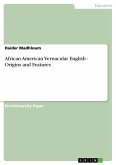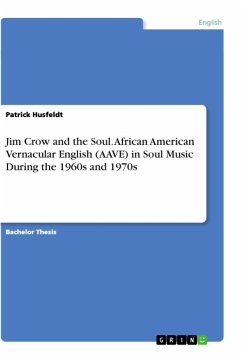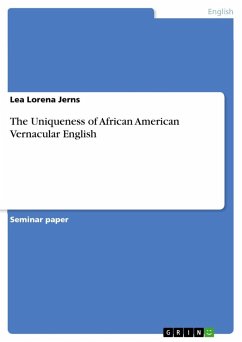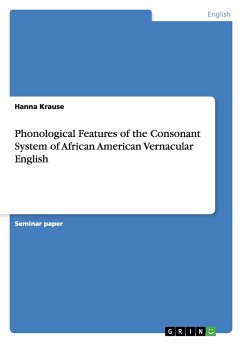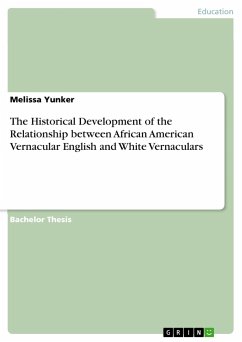Seminar paper from the year 2008 in the subject Didactics for the subject English - Applied Geography, grade: 1.7, University of Duisburg-Essen (Geisteswissenschaften), course: English in North America, language: English, abstract: From the very start I was very interested in African American Vernacular English (AAVE). In this work I also wanted to include a bit of history. I consider that history is an important influence on the present, not only regarding language but everything. History shows us the roots of things and a person who knows history avoids doing the same mistake again. In case of AAVE the language is indeed connected to the history of the African Americans, to the history of slavery and so to the history of the United States of America. For me it is also important to give a wide range on the knowledge about AAVE, a frame of history starting with the broad picture about the settlement and the rest of the history of the US. Then I will look on the history of the African Americans and the origin of their language. Finally a description of AAVE and its features follows. The question this essay deals with was mostly inspired by the controversal views about the origin of AAVE, namely the Creole-based and the dialect theory. Those might be "only" theories about the origin of AAVE but assuming one of those theories is correct defines a certain point of view on AAVE. Is AAVE "only" a dialect derived from a pidgin which developed somewhere in the Caribbean or on in West Africa or is AAVE a dialect which developed in the same manner and at the same time like all the other American dialects? Is it correct to compare AAVE to Standard English listing the mistakes this variety makes or should it rather be compared to other varieties?
Hinweis: Dieser Artikel kann nur an eine deutsche Lieferadresse ausgeliefert werden.
Hinweis: Dieser Artikel kann nur an eine deutsche Lieferadresse ausgeliefert werden.



